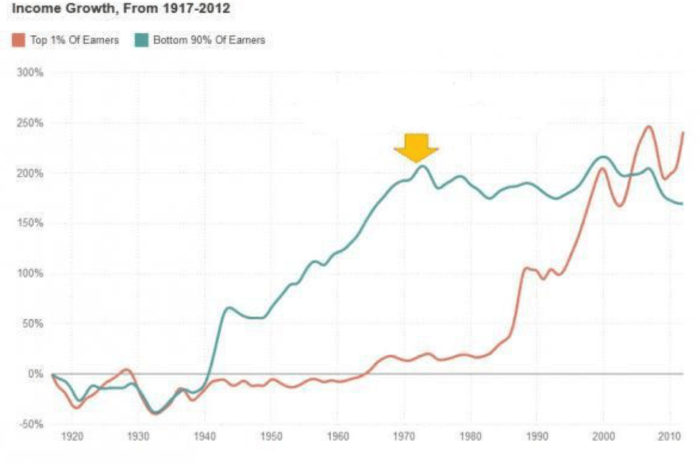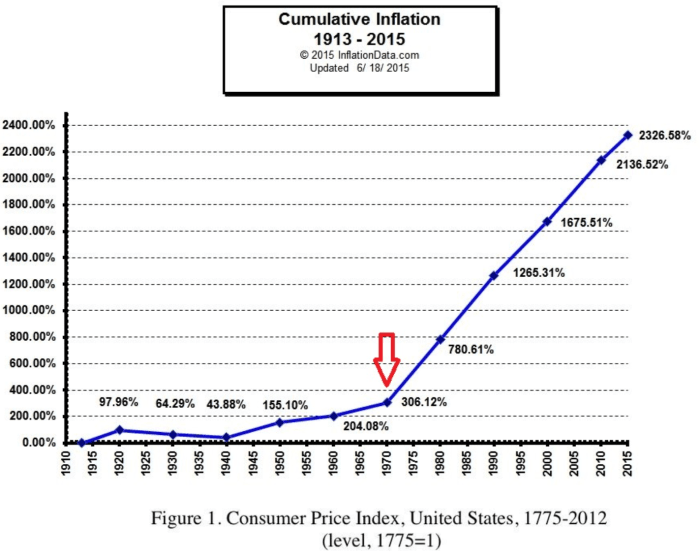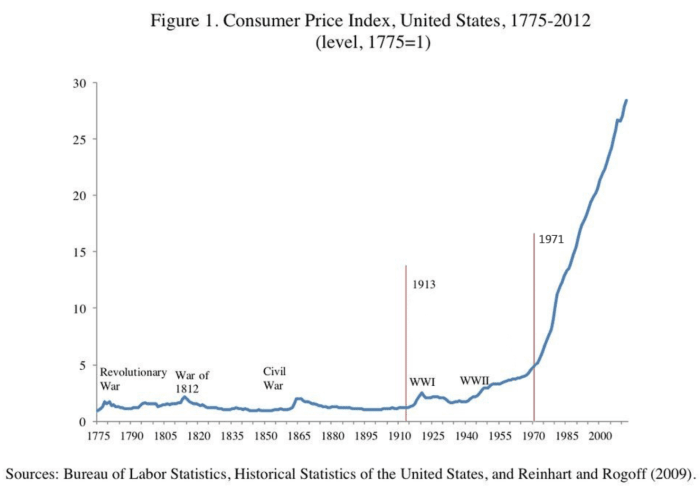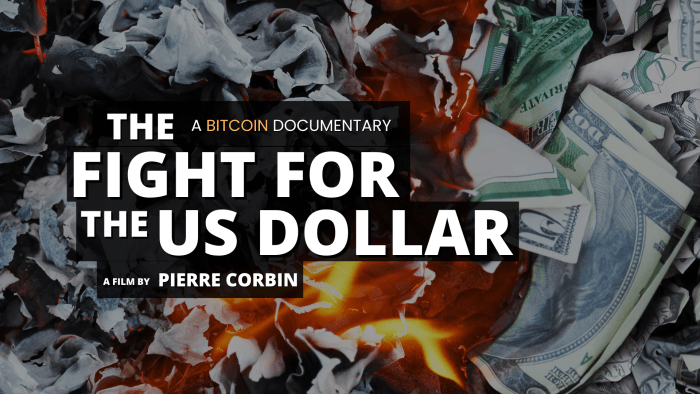Struggle for US Dollar Hegemony is a Lost Cause – Bitcoin Magazine
This is an opinion editorial by Pierre Corbin, producer and director of the documentary “The Great Reset And The Rise of Bitcoin”.
In the 18th century, the Dutch introduced the concept of mutual funds, so that investors could diversify between different international bonds. The same concept was embraced in London in the 19th century. This concept is what allowed companies like F&C Investment Trust to be founded in 1868. F&C managed a portfolio of high-yield international bonds, which pushed the concept of portfolio diversification by putting together different securities that reduced the risk of the portfolio. This is true in financial theory, and anyone with a higher education in finance probably worked on building various models around it. At the time, they believed that adding any kind of additional asset to a portfolio reduced risk – we now know that this is not the case.
Of course London was where the money was at the time. After defeating France during the Napoleonic Wars, Great Britain established its position as the world’s strongest empire and spread the British pound around the world. This diversification theory was a good reason to invest worldwide. Stock exchanges began to sprout around the world and were a sign of a developed capital. According to William Goetzmann of the National Bureau of Economic Research, “Between 1880 and 1910, more than half of the world’s markets were launched.”
The British Empire was far-reaching and majestic, but after the First World War, the Second World War and the many bankruptcies within this period, it had to step aside and let another strong power take over: the United States.
The United States has similarly increased its influence:
- This was where the central bank was located.
- By exploiting international markets and international investments.
The US dollar was at the center of this expansion, and the US had control over the currency, which gave them enormous influence over the rest of the world. Since then, time and time again, the United States has used military force to establish and defend the status of the dollar. We have seen this in Iraq and in other international conflicts. The US must defend the dollar’s status because without status as a global reserve currency, the US’s status quo is in danger and could have major consequences for the US and the world economy. The fact is that in trying to maintain their status and the system that was created as a result of the Bretton Woods agreement, the US leaders have slowly destroyed the value of the US dollar and have impoverished their citizens along the way. There are some clear charts illustrating this long-term phenomenon that can be seen here.
Of course, this is not just an American phenomenon, but also applies to the rest of the world. Through the use of the petrodollar, and because the US dollar is the global reserve currency, every other currency has been devalued faster, leading to the same result, if not worse, everywhere else.
Today, we seem to be at a changing point. The battle for hegemony in the US dollar is going strong in Europe, specifically in Ukraine. The headlines all over the world focus only on the conflict, but fail to mention what is happening in the background with the fiat system, at the risk of revealing the real geopolitical dramas. The BRICS nations have given clear hints about their medium to long-term views on the future of the US dollar. They have officially announced that they are building a new reserve currency based on real hard assets, which includes a few precious metals, further forcing the US to try to strengthen its position as the world police. We see this through the leverage used after the outcome of the presidential election in Pakistan and the position they are trying to take in China-Taiwan relations.
The battle for the US dollar is also happening on another continent: Central America has always been under great influence from the US. Thomas Jefferson once said: “In whatever governments they end, they will be American governments, no longer to be involved in the ceaseless broils of Europe. America has a hemisphere to herself.” This meant that the US would ensure that European nations leave the region so that they can influence the region themselves.
A small country, historically devastated by the US and its overreach in the region, has been trying to break away from the dollar since it adopted it 20 years ago, following decades of poor local monetary policy. In September 2021, in a historic move, El Salvador, the smallest country in the region, was the first country in the world to adopt bitcoin as legal tender, sparking the conflagration that forced the US government to re-evaluate the region. Since then, El Salvador has become a more important topic in the international media. Thanks to this move, El Salvador’s tourism has increased by 30% since the launch of the Bitcoin law, and as mentioned by their president, Nayib Bukele, El Salvador Gross domestic product (GDP) grew 10.3% in 2021, the first year in their history with double-digit GDP growth.
On the international stage, however, their geopolitical relationship seems to have changed since the country’s introduction of bitcoin. The best sign of this is the Accountability for Cryptocurrency in El Salvador (ACES) Act introduced by US Senators Jim Risch (R-Idaho), Bob Menendez (DN.J.) and Bill Cassidy (R-La.). The goal of this legislation is to allow the United States to monitor the use of bitcoin in El Salvador and take action if it believes it may represent a risk to the American economy. As a reminder, US GDP in 2021 was $23 trillion, while El Salvador’s GDP was $28.7 billion. This makes the El Salvador economy an order of magnitude smaller than that of the United States. It seems that the goal of this legislation is not to reduce the risk El Salvador represents to the US economy, but to have a victim in case they consider bitcoin to be dangerous to the US dollar.
Samson Mow, CEO of JAN3, described this best:
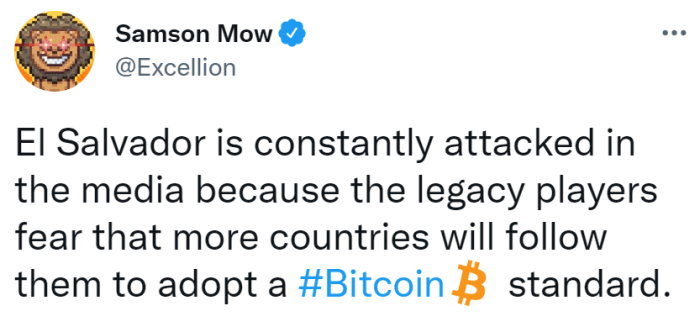
(Source)
Another important point to note is the popularity of Nayib Bukele in the region. Adopting bitcoin comes with adopting better long-term values. He is among the most popular presidents in the country’s history and is the most popular president in Latin America.
Since the introduction of bitcoin in El Salvador, other countries in the region have considered adopting it as well, but have slowed their adoption due to external pressure. Honduras is moving forward slowly, thanks to regions or cities acting independently in hopes of attracting foreign investment and tourism.
The US government’s fight for the dollar is a fascinating story. We are at a turning point in history where the dollar may lose its reserve currency status and the US government will do almost anything to defend it. One of their actions in this direction is to censor bitcoin adoption in the world.
This is a guest post by Pierre Corbin. Opinions expressed are entirely their own and do not necessarily reflect the opinions of BTC Inc. or Bitcoin Magazine.
